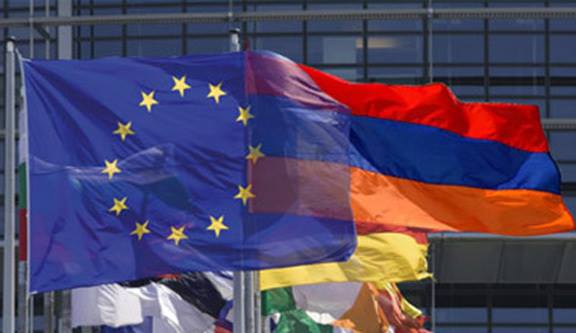The European Parliament has voted to give its consent the Comprehensive and Enhanced Partnership Agreement between Armenia and the European Union. MEPs backed the deal by 573 votes to 50, with 45 abstentions.
The new partnership agreement is not the end point in terms of EU-Armenia cooperation, but a tool to promote domestic reform and its implementation, says a separate resolution, adopted with 598 votes to 52 and 27 abstentions.
MEPs call on Armenia to make significant progress on how elections are run, the independence of the judiciary, the fight against corruption, money laundering, tax evasion and abusive oligarchic control and on media freedom. Effective implementation of these key reforms may unlock further prospects for cooperation, including the opening of a visa liberalisation dialogue, MEPs add.
MEPs regret that the Agreement cannot include the removal of tariff barriers, due to Armenia’s membership of the Eurasian Economic Union. However, they stress that it does not prevent the EU from being Armenia’s main trading partner and first donor, thus demonstrating that the EU does not expect its partners to privilege deeper relations with the EU at the expense of their relations with third parties.
They also call on the Commission to ensure that EU assistance to Armenia is not directed towards sectors affected by Russian sanctions in the EU.
MEPs applaud the citizens of Armenia on the recent peaceful transition of power and welcome the restraint shown by the law enforcement bodies, though some unjustified arrests of peaceful demonstrators raise concerns. They congratulate Nikol Pashinyan on his election as the new Prime Minister of Armenia and look forward to increased cooperation.
“This final vote in the European Parliament sends a strong message of support to the Armenian citizens. The EU is ready to support the reform efforts to which the new government has committed. We encourage them to continue combating corruption and reforming the electoral framework, in line with the recommendations of the OSCE/ODIHR and the Venice Commission,” EP rapporteur László Tőkés said.
So far, the three Baltic states—Latvia, Lithuania, and Estonia—as well as Romania, Poland and Luxembourg have ratified the Armenia-EU agreement, as reported by News.am.
